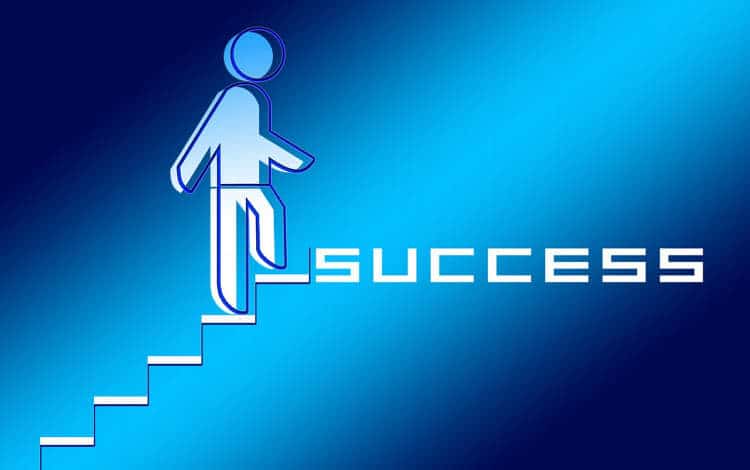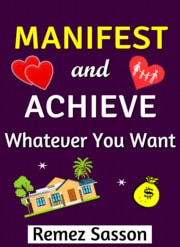
How habits and vision boards can make 2021 your best year yet.
Vision boards can help you stick with your good habits and vice versa – having habits on your vision board can make your board more powerful. And help you achieve your goals and make the next year your best year yet.
Keep reading and find out how exactly.
Browse our online courses on meditation, positive thinking, overcoming procrastination, confidence, and freedom from distractions.
Picture yourself putting together your next vision board – a collage of images and messages representing your dreams and goals. Usually, it’s all about thinking BIG and daring to challenge your wildest dreams.
This year it’s time to tweak how you use your vision board – focus more on self-compassion, stress reduction, on what you can change and influence, what’s going on internally, here and now.
It’s important, because so much of what’s going on is out of your hands. It’s time to get back into the driver’s seat of your life and focus on the small building blocks of big goals – habits.
What Are Habits And What’s the Deal with Forming or Breaking Them?
According to a 2012 study published in the British Journal of General Practice, habits are “actions that are triggered automatically in response to contextual cues that have been associated with their performance.”
For example, when you get into your car, you automatically put on the seat belt. You don’t think about doing it or why you do it.
Your brain likes habits because they’re efficient. When you automate common actions, you free up mental resources for other tasks.
The trouble is that habits are notoriously difficult to form and break. Well, at least some of them are. And that plays a huge role in why you don’t accomplish some of your goals. You can even think of habits as daily goals.
Does this sound familiar?
It’s January, you started a new gym membership, there has never been so much kale in your fridge, you remembered to drink enough water, you meditated every day for almost a week, and you managed to wake up at 6 am every morning. You’re the best version of yourself.
Fast forward a few weeks (or months, if you’ve done a good job). You’re
finding more and more excuses to skip the gym, kale gets replaced by comfort foods, and mornings start with hitting the snooze button 5 times before getting up. You forget, you lose your focus, and you run out of motivation.
How Putting Habits on Your Vision Board Makes Your Board More Powerful?
A vision board is the perfect tool for:
- Keeping goals in focus;
- Making them concrete and visual;
- Prioritizing – choosing the few things that are most important for you.
The most typical criticism that vision boards receive by psychologists – while visualization as a method is all well, proven, and working – is the aspect of making users passive spectators.
Just putting an image of a toned body or piles of money on your board, and then sitting around, waiting for something to happen.
But there is a way to do it differently – break big goals into smaller chunks and focus on habits. Think about the steps along the way, everyday choices, and small actions you can take.
What’s more – when running some visualization experiments on students, scientists have found that there’s a difference in focus that will change whether the visualization is beneficial or instead even harmful.
In one experiment, a group of students was primed to visualize the outcome of receiving a high grade on an exam.
Another group was primed to visualize preparing for the test, not just passing it, but the process of actually learning and working for it. And as always in experiments, there was a control group who didn’t do anything in particular.
Any guesses who did best? Naturally, the ones who visualized preparing, studying, and putting in the effort.
But what might come as a surprise – the ones imagining passing with a good grade did even worse than control. Similar results have been found with athletes. It’s the “getting there” aspect that makes us active, gives us motivation and empowerment.
What Are the Most Powerful Habits to Include on Your Vision Board?
Not all habits are created equal. Some of them will have a bigger effect on your physical and emotional well-being. Some of them might even create a positive upward spiral, helping you transform your life.
Here are three which are often considered the most important and powerful ones.
We could call them magic pills because:
- They don’t cost you anything;
- They have some crazy health and happiness benefits;
- But absolutely no side-effects.
Sleep
Sleep is considered one of the foundations of your health for a good reason. But good sleep is something you can’t take for granted. It’s fragile and can easily be messed up. And when that happens life gets really challenging very quickly.
Virtually, every psychological disorder we know of has some form of sleep disorder that’s connected with it.
The other health consequences of sleep deprivation are also pretty grave. I’m not talking about only chronic deprivation – even one night of too little sleep has some pretty serious impact on your health and mood.
So, fixing your sleep is one of the biggest things you can do for your well-being.
This is something I always have on my vision board. It can be an image associated with getting good rest or a pre-sleep ritual, simply an inviting image of a bed, or even a mantra that helps you fall asleep faster.
I’m sure you already know a few techniques on how to fix your sleep, but it’s always a good idea to remind yourself what’s good and true:
- Go to sleep and wake up at roughly the same time – this will make falling asleep much faster and waking up easier;
- Avoid screens before going to sleep – it’s not only a question of the blue light but also
what you see on the screen; - Avoid news and arousing info before going to sleep;
- Be careful with caffeine and note that coffee is not the only place where you get it from.
Meditation
The many, happy and scientifically proven “side-effects” of meditation are:
- Increasing kindness and social connection;
- Lengthening attention span;
- Increasing self-awareness;
- Reducing negative emotions;
- Increasing imagination and creativity;
- Increasing resilience to stress and anxiety;
- Improving sleep;
- Alleviating symptoms of several illnesses.
So how to make it easier for yourself to start (and keep) meditating?
- Start with baby steps – if 20 minutes is too much, start with 10 or 5, or even 1 minute.
- If you’re completely out of willpower, then take just 1 mindful breath – the beginning is always the most difficult part.
- Find the style that works best for you.
- Do it with joy and ease – ease and relax into meditation.
- Don’t let it create additional stress.
- Link meditation to some other routine of your day, so it can act as a supportive cue (e.g. going to bed in the evening, turning off your alarm in the morning, looking at your vision board and the picture symbolizing meditation).
Physical Activity
For physical activity and exercise, there are so many benefits to mention that the list would be ridiculously long.
I’ll keep my point short:
- Exercise has a bigger chemical impact on your brain than antidepressants;
- It’s quite literally the “flight or fight” action that your anxiety wants to see you doing;
- It makes you sleep better;
? It reduces the likelihood of catching a million different diseases; - And it boosts your brain function and cognitive function – yes, exercise makes you smarter!
But despite all this, exercise is one of the more difficult habits to adopt, as shown by research. For example, it is generally easier to adopt the habit of drinking a glass of water at breakfast than do 50 situps after morning coffee.
So What Can You Do about It?
- Make it so small that you can’t say no (like the 1 breath rule for meditation).
- Never miss twice – don’t be too hard on yourself if you mess up your routine once, but always get back on track, and don’t try to overcompensate the next time.
- Be realistic, don’t try to take on too much at a time.
- Be patient.
- Reward yourself.
Conclusion
Habits are the small building blocks that make up big goals and success. And what’s important – they are under your control. So, when facing the new and turbulent year, it’s wise to put more focus on habits.
As changing your habits is easier said than done, use all the tools and tricks that can make it easier. One great idea that’s perfect for highly visual people is using a vision board. It will help you keep your goals in focus and make them concrete and visual.
About the writer
Kairi Kuuskor is the co-founder and designer of Bold Tuesday – a company dedicated to helping people live better lives. For this, they create high-end all-inclusive vision board kits, which save you time, nerves, and will always look stylish.

